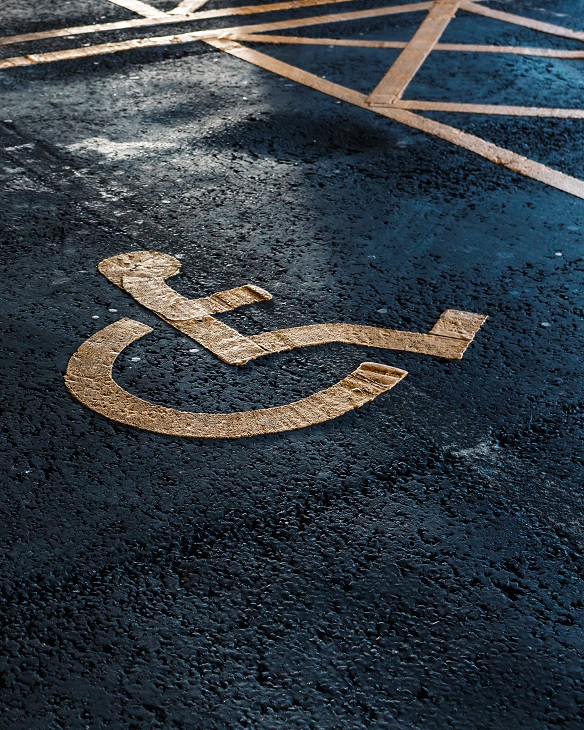In the hustle and bustle of modern life, it can be easy to overlook the challenges faced by our senior citizens as they navigate the world. One aspect that often goes unnoticed is the significance of handicap parking spaces. As we strive to create an inclusive and accessible society, it’s crucial to shed light on how handicap parking benefits senior citizens – from Texas accessible parking for elderly drivers to Michigan disabled parking options for senior citizens, these designated spaces not only offer a practical solution for those with mobility issues, but also serve as a symbol of respect and consideration for the aging members of our community.
Today we’ll be delving into the various ways in which handicap parking positively impacts the lives of senior citizens, highlighting its role in promoting independence, safety, and an overall enhanced quality of life.
Why Do Senior Citizens Need Disabled Parking?
Senior citizens may need to use disabled parking for a variety of reasons, primarily centered around the physical challenges that often accompany aging. As individuals grow older, they may experience a range of mobility issues, making the availability of disabled parking spaces crucial for maintaining their independence and quality of life.
One of the primary reasons seniors utilize disabled parking is the prevalence of age-related conditions affecting mobility. Arthritis, joint pain, and reduced muscle strength can make walking longer distances challenging and painful. Access to disabled parking spaces, typically located closer to entrances, significantly reduces the physical strain on senior citizens, allowing them to conserve energy for other activities.
Additionally, many seniors face challenges with balance and coordination as they age. Navigating uneven surfaces in parking lots or negotiating crowded areas can pose an increased risk of falls. Disabled parking spaces, often designed with wider aisles and accessible pathways, provide a safer environment for seniors with balance concerns. This reduced risk of accidents contributes to both the physical well-being and confidence of elderly individuals.
For seniors who rely on mobility aids such as canes, walkers, or wheelchairs, disabled parking becomes essential. These individuals require extra space to maneuver safely, and accessible parking spaces are designed to accommodate their needs. Having designated parking areas near entrances ensures that seniors with mobility aids can access public spaces with greater ease and independence.
In essence, the need for disabled parking among senior citizens stems from the desire to overcome physical limitations associated with aging. By providing accessible parking options, society not only acknowledges the challenges faced by seniors but also fosters a more inclusive and supportive environment that enables them to remain active participants in community life. Disabled parking is not just a matter of convenience for seniors; it is a fundamental aspect of promoting their well-being, safety, and continued engagement in the broader community.
Accessible Parking Benefits for Elderly Drivers
Accessible parking offers a multitude of benefits for elderly drivers, significantly enhancing their overall mobility and contributing to a more inclusive and supportive urban environment. Beyond mere convenience, these benefits address the unique challenges that often accompany aging, fostering a sense of independence and well-being among the elderly.
The foremost advantage lies in the proximity of accessible parking spaces to entrances, alleviating the physical strain on elderly drivers. For seniors dealing with reduced mobility, joint pain, or diminished stamina, the convenience of parking closer to destinations minimizes the exertion required to access public spaces. This, in turn, enables elderly drivers to engage more actively in community activities, attend social events, and access essential services without the fatigue associated with navigating extensive parking lots.
Safety is another paramount benefit. Accessible parking spaces are designed with wider aisles and designated pathways, reducing the risk of accidents and falls, particularly for seniors using mobility aids. The well-thought-out layout of these spaces creates a secure environment, contributing to the overall safety and confidence of elderly drivers as they navigate parking areas.
Moreover, accessible parking fosters a sense of inclusivity for elderly drivers. By providing designated spaces that cater to their specific needs, society communicates a commitment to respecting and supporting the aging population. This inclusivity extends beyond mere functionality, encouraging seniors to remain active participants in community life and reducing any perceived barriers that might hinder their social engagement.
In essence, accessible parking benefits for elderly drivers extend far beyond the ease of finding a parking spot. They contribute to the preservation of independence, the enhancement of safety, and the promotion of a more age-friendly society. Recognizing the importance of these benefits underscores the significance of continued efforts to prioritize and expand accessible parking options for the elderly in our communities.

Senior Citizens and Designated Parking Spaces
From California senior citizen handicap parking regulations to Ohio mobility assistance for elderly drivers, seniors across the entire country have a right to accessibility. Designated parking spaces for senior citizens are a testament to a society that values and respects the contributions of its aging population. These spaces acknowledge the unique needs of seniors, offering practical solutions that cater to their well-being. By allocating specific areas for elderly drivers, communities communicate a commitment to fostering age-friendly environments where seniors can navigate public spaces with dignity and ease.
The designation of parking spaces for seniors extends beyond legal requirements; it symbolizes a cultural shift towards recognizing the importance of inclusivity. When seniors feel acknowledged and accommodated, it positively impacts their sense of belonging and encourages continued engagement in community activities.
Proximity Advantages of Handicap Parking for the Elderly
The proximity advantages of handicap parking for the elderly can’t be overstated. For seniors facing physical limitations, these spaces represent a welcome respite from the challenges of traversing expansive parking lots. The reduced distance between the parking spot and the destination not only conserves energy but also alleviates the potential discomfort associated with extended walks.
This advantage is particularly significant for seniors dealing with joint pain, limited stamina, or other mobility issues. By providing designated parking spaces closer to entrances, communities create environments that empower elderly drivers to participate more fully in public life. The proximity advantages contribute to a higher quality of life for seniors, enabling them to attend events, visit healthcare facilities, and engage in recreational activities with greater ease.
Do All Seniors Qualify for a Handicap Parking Permit?
Senior citizens may qualify for disabled parking permits based on a range of conditions commonly associated with aging. Conditions such as arthritis, osteoporosis, and other degenerative joint diseases can significantly impact mobility, making it challenging for seniors to navigate parking lots and access public spaces without difficulty. Chronic pain, reduced muscle strength, and balance issues are also common concerns among the elderly, further emphasizing the need for accessible parking options.
Additionally, seniors with cardiovascular conditions, respiratory issues, or neurological disorders may find it essential to have proximity to entrances for medical appointments and daily activities. Qualifying for a disabled parking permit often involves a medical evaluation to assess the impact of these conditions on an individual’s ability to walk or move.
By understanding the qualifying conditions, senior citizens can explore the option of obtaining a disabled parking permit, providing them with the necessary accommodations to maintain their independence and mobility. Qualifying conditions may differ between states – Florida elderly parking permit eligibility may not be exactly the same as Georgia senior citizen parking permit requirements, for example – so be sure to check your state’s particular regulations to determine eligibility.
How to Obtain Handicap Parking Permits for Seniors
Understanding the process of obtaining handicap parking permits is essential for seniors looking to access the benefits of designated parking spaces. Typically, the application process involves a medical evaluation to determine eligibility based on mobility challenges. Seniors or their caregivers must gather relevant medical documentation, which may include physician statements or other required forms.
Once eligibility is established, the application is submitted to the appropriate local authorities, such as the Department of Motor Vehicles. It’s crucial to be aware of the specific requirements and procedures in the relevant jurisdiction, as they can vary. Additionally, some areas may offer temporary or permanent permits, depending on the nature and duration of the mobility challenges.
***
In conclusion, the allocation of handicap parking spaces emerges as a crucial factor in promoting the welfare of our senior citizens. By recognizing and addressing the unique mobility challenges faced by older individuals, we not only contribute to their physical well-being but also foster a society that values and respects its aging members. Handicap parking spaces serve as tangible manifestations of our commitment to inclusivity and compassion, creating environments where senior citizens can navigate public spaces with dignity and ease. As we advocate for an age-friendly society, let us continue to champion initiatives that prioritize the needs of our senior citizens, starting with the simple yet impactful provision of accessible parking. In doing so, we take a significant step towards building a community that honors and supports individuals across all stages of life.
In search of New York senior-friendly disabled parking spaces, Arizona parking tips for seniors with limited mobility? Want more info on Pennsylvania seniors and accessible parking regulations or Illinois’ best parking solutions for senior citizens with disabilities? Dr Handicap has you covered! Check out our site for all you need to know about handicap parking for senior citizens.
Featured image by Kampus Productions on Pexels




